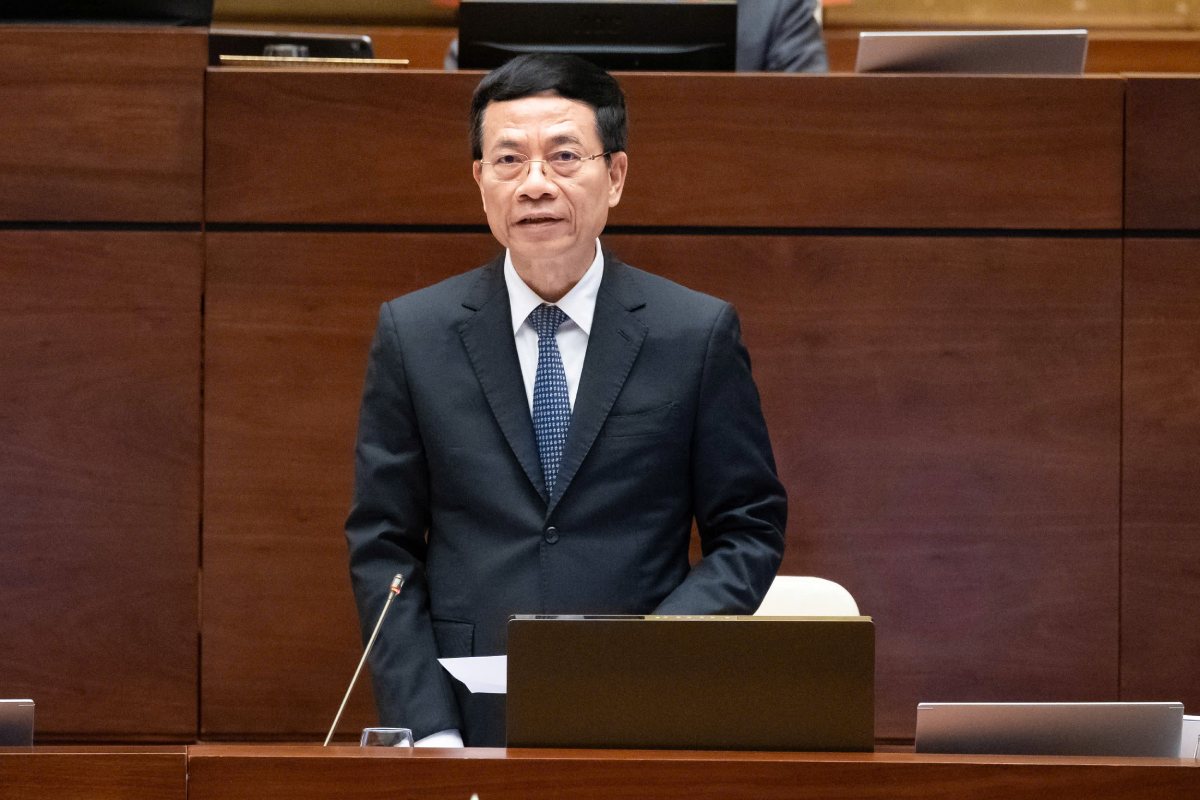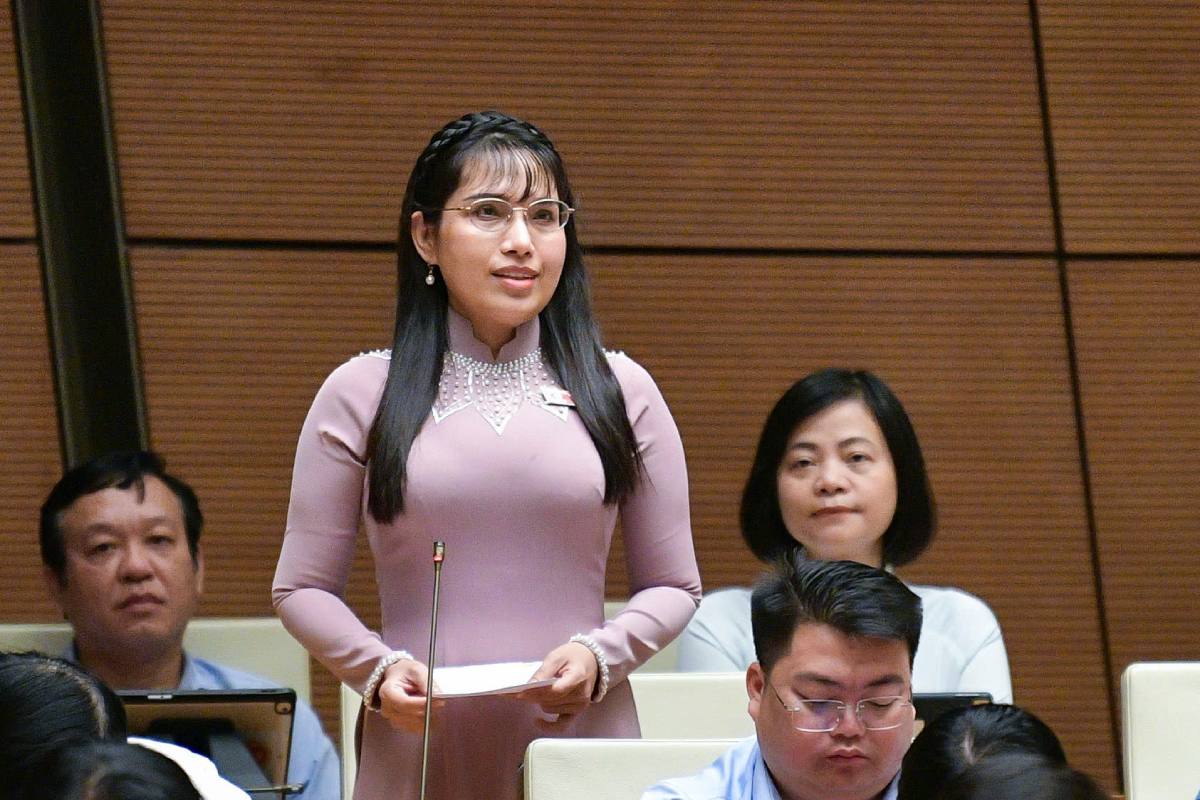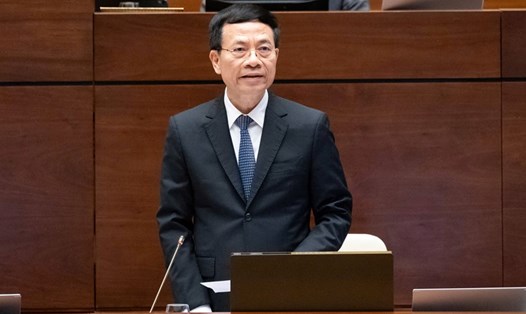Cyberspace used to be anonymous and therefore irresponsible.
On the morning of November 12, the National Assembly questioned a group of issues in the field of information and communication.
Raising the question, delegate Nguyen Huu Thong (Binh Thuan Delegation) said that the report of the Ministry of Information and Communications identified one of the causes of the existing problems and limitations with advertising activities on the network environment as the responsibility of some ministries and branches for not adding responsibility for managing specialized advertising content on cyberspace.
The delegate requested the Minister to provide specific information on which ministries and branches these are and the responsibilities of the Minister and the Government to overcome the above shortcomings and limitations in the coming time?

Answering this question, Minister of Information and Communications Nguyen Manh Hung stated that cyberspace is no different from real space. If real space has ministries, branches, and localities, then cyberspace also has ministries, branches, and localities; the world has countries, then cyberspace also has countries.
“Only when each household does its own work, and who does what in the real world, and then manages cyberspace, can cyberspace be healthy,” the Minister emphasized, adding that it is necessary to increase this awareness, which has recently changed significantly.
Recently, the content that National Assembly delegates talk a lot about is advertising functional foods, counterfeit goods, and fake goods.
The Ministry of Health and the Ministry of Industry and Trade have taken the main front in cyberspace and built tools to scan and handle false advertising in cyberspace.
The Minister said that in the past, cyberspace was anonymous, so people could be irresponsible. But recently, there was a decree stipulating that newly registered accounts must be identified through phone numbers and citizen identification cards, so now everyone's responsibility has been raised.
The Minister wants ministries, sectors and localities to use the online environment to manage their fields. As for the scanning tool, the ministry will support and even train human resources.

Superstitious behavior on the internet can be criminally prosecuted
Participating in the questioning, delegate Chau Quynh Dao (Kien Giang delegation) said that currently, online spiritual, fortune-telling, and horoscope services are showing signs of flourishing with a large number of fortune-tellers, causing many consequences. This is a fertile space for bad guys to take advantage of and defraud while people lose money and suffer.
Delegates asked the Minister of Information and Communications to provide the most fundamental solution to completely handle superstitious activities on cyberspace?
Responding to this issue, the Minister emphasized the view that each household manages its own household. Therefore, the Ministry of Culture, Sports and Tourism must intervene to determine whether this behavior is superstitious or not. Because our country already has regulations on handling superstitious behavior. Once the behavior is determined, if it is necessary to identify the identity or prevent it, it will coordinate with the Ministry of Information and Communications to handle it.
"We are working with social networks. When the criteria for superstition are clear, we will require social networks and social platforms to develop self-scanning and downgrading tools," the Minister said, adding that social network platforms and network operators make a lot of money and profit, so they must be responsible for making cyberspace healthier.
"We must deal harshly with superstitious people, either administratively or criminally," said Minister Nguyen Manh Hung.











